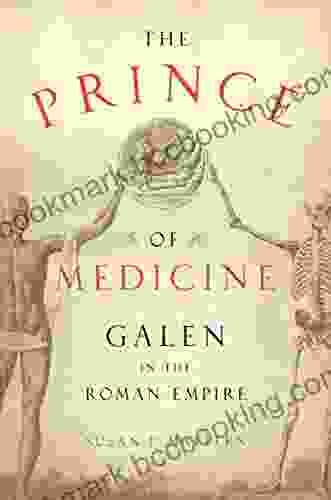Ludwig van Beethoven: The Immortal Genius of Universal Music

: The Titan of Classical Music
Ludwig van Beethoven, born on December 16, 1770, in Bonn, Germany, is widely regarded as one of the most influential and revered composers in the history of music. With his groundbreaking compositions and unwavering determination, Beethoven left an enduring legacy that continues to captivate audiences worldwide. His music transcends the boundaries of time and culture, uniting people from all walks of life in a shared appreciation for its beauty and power.
4.2 out of 5
| Language | : | English |
| File size | : | 17117 KB |
| Screen Reader | : | Supported |
| Print length | : | 252 pages |
Early Life and Musical Prodigy
Beethoven's early life was marked by both promise and adversity. Born to a music-loving family, he began taking piano lessons from his father at the tender age of four. By the age of 12, he had composed his first piano variations and performed publicly. His talent was undeniable, and he quickly gained recognition as a child prodigy.
However, Beethoven's childhood was also marked by challenges. His father's alcoholism and financial difficulties cast a shadow over his family life. Despite these obstacles, Beethoven's determination to pursue music remained unwavering.
Move to Vienna and Rising Star
In 1792, at the age of 22, Beethoven moved to Vienna, the musical capital of Europe at the time. He quickly established himself as a virtuoso pianist and began composing his first major works. His early compositions, such as the "Pathétique" Sonata (1798),showcased his emotional intensity and groundbreaking musical innovations.
Triumph and Tribulations
Over the next two decades, Beethoven's career soared to new heights. He composed some of his most iconic works, including the "Eroica" Symphony (1804),the Fifth Symphony (1808),and the Ninth Symphony (1824). These compositions pushed the boundaries of classical music, introducing new harmonic structures, expanded orchestration, and a deeply personal and expressive style.
However, Beethoven's life was not without its challenges. In 1802, he began to experience hearing loss, which gradually progressed to complete deafness. This debilitating condition forced him to rely on his inner ear and intuition to compose.
Late Masterpieces and Immortal Legacy
Despite his deafness, Beethoven's creativity and determination never wavered. In the final years of his life, he created some of his most profound and emotionally charged works, including the late string quartets and the "Hammerklavier" Sonata (1816).
Beethoven died on March 26, 1827, at the age of 56. His death sent shockwaves through the musical world and beyond. His legacy, however, lived on through his timeless compositions.
Beethoven's Impact on Music and Culture
Beethoven's music has had a profound impact on both classical music and Western culture as a whole. His innovative use of harmony, rhythm, and form laid the foundation for Romantic music and influenced generations of composers, including Schubert, Wagner, and Mahler.
Beyond its musical significance, Beethoven's music has also become a symbol of human triumph over adversity. His deafness did not diminish his spirit or his ability to create some of the most profound and enduring music ever written.
Themes and Style
Beethoven's music is characterized by a number of key themes and stylistic elements:
* Emotional Intensity: Beethoven's music often conveys a wide range of emotions, from joy and triumph to sorrow and despair. * Narrative Structure: Many of his works are structured as musical journeys, with clear developmental and contrasting sections that unfold over time. * Use of Motifs: Beethoven frequently employs short melodic fragments, or motifs, as the basis for entire compositions. These motifs are transformed and developed throughout the work, creating a sense of unity and coherence. * Orchestral Innovation: Beethoven expanded the size and scope of the orchestra, introducing new instruments and using them in unprecedented ways. His orchestral works are known for their dramatic impact and expressive power.
Famous Works
Beethoven composed a vast catalog of works, including:
* Symphonies: 9 symphonies, including the "Eroica" Symphony (3rd),the Fifth Symphony (5th),and the Ninth Symphony (9th),with its famous "Ode to Joy" chorus. * Piano Sonatas: 32 piano sonatas, including the "Pathétique" Sonata (8th),the "Moonlight" Sonata (14th),and the "Hammerklavier" Sonata (29th). * String Quartets: 16 string quartets, including the "Razumovsky" quartets (Op. 59) and the late quartets (Op. 127, 130, 131, 132, and 135). * Concertos: 5 piano concertos, including the "Emperor" Concerto (5th),and the Violin Concerto (D major).
: The Immortal Master
Ludwig van Beethoven's music has the power to transcend time and connect with people from all walks of life. His unwavering spirit, emotional intensity, and groundbreaking innovations have made him one of the most beloved and influential composers in history. As we continue to listen to and appreciate his music, we are reminded of the enduring power of human creativity and the transformative impact it can have on our lives.
Beethoven's legacy lives on through the countless performances, recordings, and adaptations of his works. He remains a source of inspiration and joy for musicians and music lovers around the globe. Ludwig van Beethoven, the immortal genius of universal music, will forever be remembered as a titan of the art form and a symbol of the human spirit.
4.2 out of 5
| Language | : | English |
| File size | : | 17117 KB |
| Screen Reader | : | Supported |
| Print length | : | 252 pages |
Do you want to contribute by writing guest posts on this blog?
Please contact us and send us a resume of previous articles that you have written.
 Book
Book Novel
Novel Page
Page Chapter
Chapter Text
Text Story
Story Genre
Genre Reader
Reader Library
Library Paperback
Paperback E-book
E-book Magazine
Magazine Newspaper
Newspaper Paragraph
Paragraph Sentence
Sentence Bookmark
Bookmark Shelf
Shelf Glossary
Glossary Bibliography
Bibliography Foreword
Foreword Preface
Preface Synopsis
Synopsis Annotation
Annotation Footnote
Footnote Manuscript
Manuscript Scroll
Scroll Codex
Codex Tome
Tome Bestseller
Bestseller Classics
Classics Library card
Library card Narrative
Narrative Biography
Biography Autobiography
Autobiography Memoir
Memoir Reference
Reference Encyclopedia
Encyclopedia Jennifer Lang Md
Jennifer Lang Md Jesse Wente
Jesse Wente Liam Vaughan
Liam Vaughan Jen Gotch
Jen Gotch Jp Pullos
Jp Pullos Jeffrey Ross
Jeffrey Ross Jill Blakeway
Jill Blakeway Jennifer Carter
Jennifer Carter Molly Yeh
Molly Yeh Jim Freeman
Jim Freeman Ranjit Kumar
Ranjit Kumar Rick Aper
Rick Aper Kim Phillips Fein
Kim Phillips Fein Tony Barr
Tony Barr Karnig Panian
Karnig Panian Jeri Magg
Jeri Magg Walter Foster Jr Creative Team
Walter Foster Jr Creative Team Jerzy Jones
Jerzy Jones Lisa Hoehn
Lisa Hoehn John Coleman
John Coleman
Light bulbAdvertise smarter! Our strategic ad space ensures maximum exposure. Reserve your spot today!

 Gabriel Garcia MarquezA Naturalist's Journey Through the Wyoming Wilderness: Rocky Mountain Bighorn...
Gabriel Garcia MarquezA Naturalist's Journey Through the Wyoming Wilderness: Rocky Mountain Bighorn... Tyrone PowellFollow ·17.1k
Tyrone PowellFollow ·17.1k Stan WardFollow ·13.4k
Stan WardFollow ·13.4k Fernando BellFollow ·7.8k
Fernando BellFollow ·7.8k Winston HayesFollow ·3.7k
Winston HayesFollow ·3.7k Brian BellFollow ·16.6k
Brian BellFollow ·16.6k Roland HayesFollow ·5.5k
Roland HayesFollow ·5.5k Pablo NerudaFollow ·9.5k
Pablo NerudaFollow ·9.5k Anthony BurgessFollow ·17.9k
Anthony BurgessFollow ·17.9k

 Patrick Rothfuss
Patrick RothfussGuide for Parents: Unlocking Your Child's Problem-Solving...
As a parent, you...

 Ignacio Hayes
Ignacio HayesThe Good Girls of Al Noor: A Gripping Tale of Hope and...
On March 15, 2019, a...

 Lee Simmons
Lee Simmons50 Games and Activities for All the Turkeys at Your...
Thanksgiving is a time for family, friends,...

 Sean Turner
Sean TurnerRewiring the World: From Edison to Google - The...
A Captivating...
4.2 out of 5
| Language | : | English |
| File size | : | 17117 KB |
| Screen Reader | : | Supported |
| Print length | : | 252 pages |














